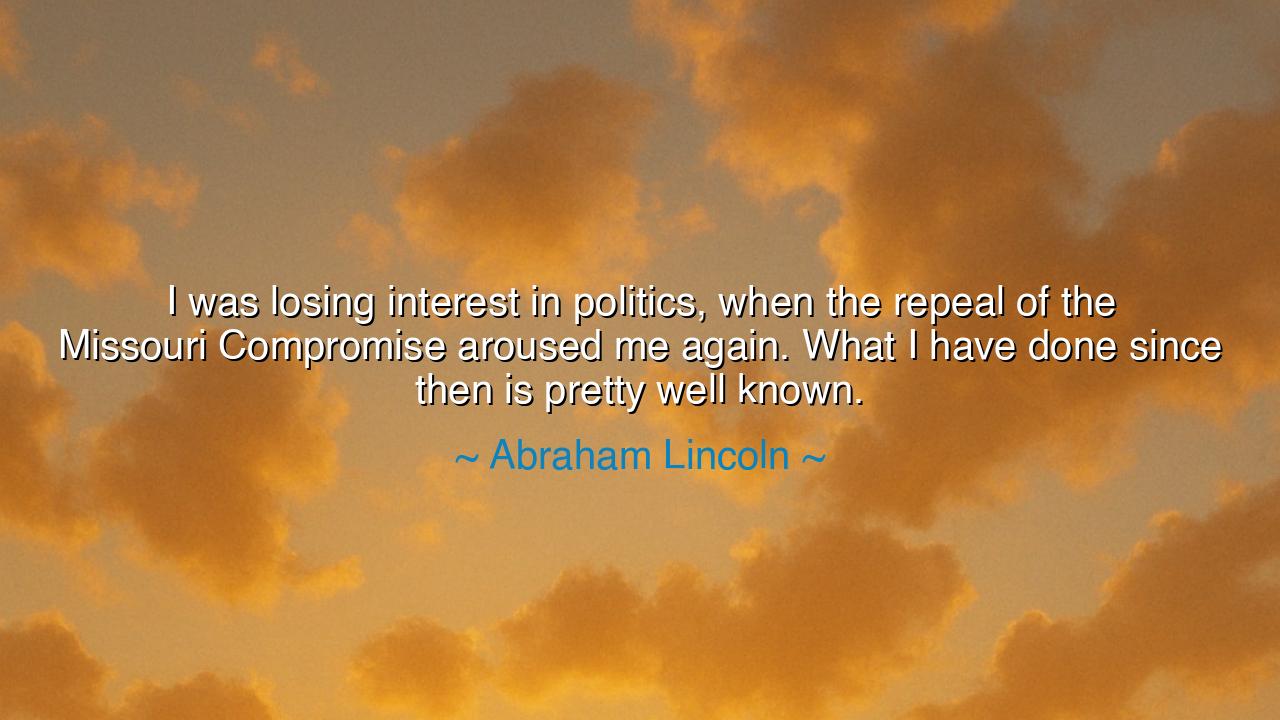
I was losing interest in politics, when the repeal of the
I was losing interest in politics, when the repeal of the Missouri Compromise aroused me again. What I have done since then is pretty well known.






The words of Abraham Lincoln shine with the fire of awakening: “I was losing interest in politics, when the repeal of the Missouri Compromise aroused me again. What I have done since then is pretty well known.” In this quiet yet resolute confession, he reveals the moment when slumbering resolve was stirred into destiny. Though weary of the political fray, it was the injustice of slavery’s expansion that summoned him back into the arena, setting him on the path to become not only a president, but a savior of the Union.
The Missouri Compromise of 1820 had drawn a line across the land, forbidding slavery’s spread into northern territories. For decades, it stood as a fragile wall holding back the flood of bondage. But in 1854, with the Kansas-Nebraska Act, that wall was torn down, opening the door for slavery to march westward. To many, this was politics as usual; to Lincoln, it was a wound against the soul of the nation. Where once he had drifted into quiet life, now he felt the call of history.
From this moment, Lincoln’s course was set. He rose to speak with clarity and fire, declaring that a house divided against itself could not stand. His debates with Stephen Douglas, his speeches before farmers and laborers, his words carried the force of a conscience newly awakened. The repeal had not only roused him—it had transformed him into the voice of a moral revolution. Thus he reminds us: great men are often made not by ambition, but by outrage against injustice.
History has many such awakenings. Consider Mahatma Gandhi, who once lived as a lawyer in South Africa, quiet and conventional, until the humiliation of racial injustice roused him to resistance. Or Martin Luther King Jr., whose ministry might have remained local had not the fires of segregation awakened his prophetic call. So too with Lincoln: the violation of compromise became the birth of a leader.
Let this wisdom endure. There are moments when one may drift into silence, weary of the struggle, resigned to the corruption of the age. Yet when a great injustice rises, the heart of the just cannot remain still. It is then that destiny whispers: awaken, rise, and speak. For history itself is moved not by the comfortable, but by those who, when stirred by conscience, step once more into the battle. Thus Lincoln’s quiet words become thunder to future generations: when injustice rouses you, do not hesitate—for the world may yet be changed by what you do next.






AAdministratorAdministrator
Welcome, honored guests. Please leave a comment, we will respond soon